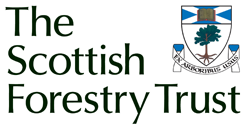Ownership effect on benefits from woodland expansion
Carried out by: Forest Research/University of Edinburgh
Summary Description:
Despite afforestation over the last 100 years, woodland cover in Scotland remains low in both a historical and European context. The Millennium Ecosystem Assessment provided evidence that over 60% of ecosystem services (ES) are currently being degraded/used unsustainably (MEA, 2005), and biodiversity loss continues, with over 18% of species and 33% of habitats thought to have been lost in Scotland (Hughes and Brookes, 2009). In addition, the challenge of climate change means that species are struggling to adapt, and there is increasing need for mitigation through carbon sequestration, with afforestation being seen as an important way to achieve this. At the same time, there is increasing debate over land reform in Scotland and the implementation of the Scottish Land Use Strategy which aims for responsible stewardship of Scotland’s natural resources to deliver more benefits to Scotland’s people (Scottish Government, 2011).
These challenges present an opportunity to evaluate the impact of previous woodland expansion on ES (Thomas et al. 2015), by assessing how ES vary in different contexts and what trade-offs exist between woodland and other land uses. The recent growth and improvement in methods to quantify ES (ES indicators) means that there is an excellent opportunity to make use of new tools for ES evaluation which have not been used before.
The following research questions will be addressed in the course of this four year PhD:
- What has been the impact of woodland expansion on ES to date?
- How do key woodland ES vary under different ownership and governance types?
- What types of ownership and governance are most effective for achieving woodland expansion and provision of ES?
- What are the synergies and trade-offs between woodland ES and ES from other land uses?
- What are the most sustainable and resilient models of ownership and governance for achieving woodland expansion and provision of ES given alternative climate change and socio-economic scenarios?
Timescale: 2015-2019
SFT Funds Awarded: £24,897
SFT/FC Joint Bursary Award Scheme:. This project has received funding from the SFT/FC Joint Bursary Award.
